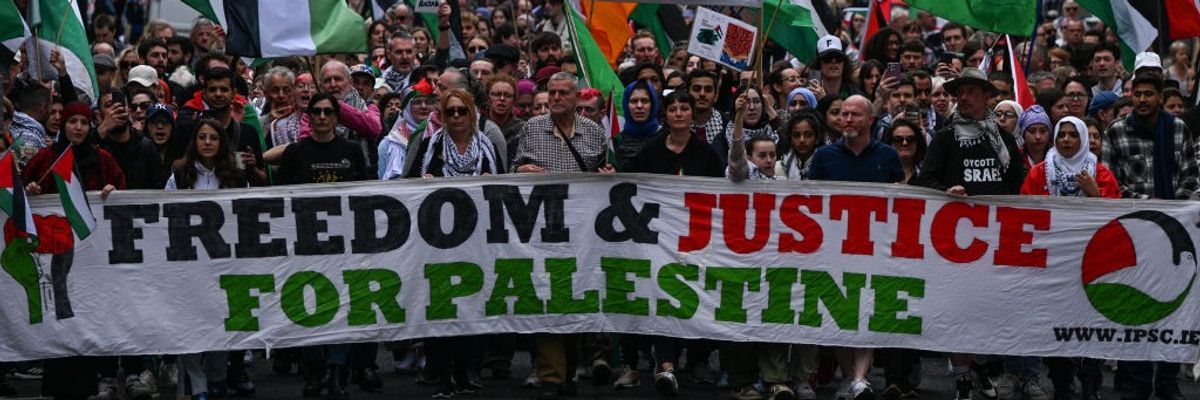Ireland's Taoiseach Simon Harris on Sunday responded to charges by the Israeli government—which earlier in the day shuttered its embassy in Dublin—by saying the Irish government has not been "anti-Israel" in its positions over the war in Gaza, but rather "pro-peace, pro-human rights, and pro-international law."
In a statement explaining the official closure of the diplomatic outpost, Israeli foreign minister Gideon Saar said the "decision to close the Israeli embassy in Dublin was made in light of the extreme anti-Israel policy of the Irish government."
The ministry's statement noted that "the Israeli ambassador in Dublin was returned to Israel at the time following Ireland's decision to unilaterally recognize a 'Palestinian state'," which took place in May of this year.
Saar said Ireland had used "antisemitic rhetoric" against Israel, though did not specify what language he was referring to, and also accused the country of "crossing every red line in its relations with Israel."
In addition to formally recognizing a Palestinian state, the government of Ireland has also backed South Africa in its genocide case against Israel, brought before the International Court of Justice (ICJ) earlier this year.
In his Sunday response to Israel's decision, Harris said he was "deeply disappointed" in the move even as he "utterly rejected" Israeli assertions.
"Ireland's foreign policy is founded on our deep commitment to dialogue and to the peaceful resolution of disputes," Harris said, adding that embassies worldwide "play a very important role" in maintaining that commitment.
"Ireland wants a two-state solution and for Israel and Palestine to live in peace and security," he concluded. "Ireland will always speak up for human rights and international law. Nothing will distract from that."
In a separate reaction to Israel's decision, Micheál Martin, the Tánaiste and Minister for Foreign Affairs, said there were no plans to retaliate diplomatically or reciprocate by closing the Irish embassy in Israel.
"The continuation of the war in Gaza and the loss of innocent lives is simply unacceptable and contravenes international law," Martin said. "It represents the collective punishment of the Palestinian people in Gaza. We need an immediate ceasefire, the release of all hostages and a surge of humanitarian aid into Gaza."
"Ireland and Israel will continue to maintain diplomatic relations," he added. " Inherent in that is the right to agree and disagree on fundamental points."
